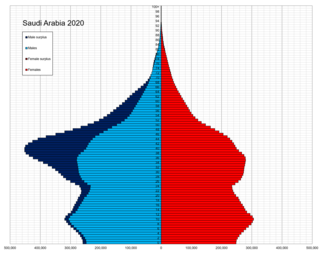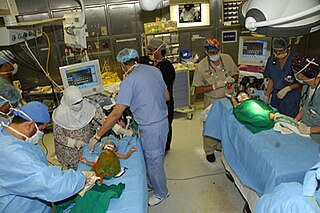External links
- Saudi Arabia Football Federation
- Saudi League Statistics
- Al Jazirah 6 May 1992 issue 7160 (in Arabic)
| Season | 1991–92 |
|---|---|
| Champions | Al-Raed |
← 1990–91 1992–93 → | |
Statistics of the 1991–92 Saudi First Division.
| Pos | Team | Pld | W | D | L | GF | GA | GD | Pts | Promotion or relegation [lower-alpha 1] |
|---|---|---|---|---|---|---|---|---|---|---|
| 1 | Al-Raed | 18 | 10 | 6 | 2 | 28 | 13 | +15 | 26 | Promotion to the Saudi Professional League |
| 2 | Al-Najma | 18 | 10 | 6 | 2 | 20 | 17 | +3 | 26 | |
| 3 | Al-Arabi | 18 | 8 | 6 | 4 | 20 | 16 | +4 | 22 | |
| 4 | Hajer | 18 | 9 | 4 | 5 | 25 | 12 | +13 | 22 | |
| 5 | Al-Oyoon | 18 | 5 | 8 | 5 | 16 | 18 | −2 | 18 | |
| 6 | Al-Ansar | 18 | 4 | 9 | 5 | 22 | 20 | +2 | 17 | |
| 7 | Al Taawon | 18 | 5 | 6 | 7 | 17 | 20 | −3 | 16 | |
| 8 | Al-Rawdhah | 18 | 5 | 6 | 7 | 19 | 24 | −5 | 16 | |
| 9 | Damac | 18 | 2 | 10 | 6 | 11 | 24 | −13 | 14 | Relegate to Saudi Second Division |
| 10 | Al Jabalain | 18 | 1 | 3 | 14 | 13 | 40 | −27 | 5 |

Saudi Arabia is the fourth largest state in the Arab world, with a reported population of 32,175,224 as of 2022. 41.6% of inhabitants are immigrants. Saudi Arabia has experienced a population explosion in the last 40 years, and continues to grow at a rate of 1.62% per year.

The economy of Saudi Arabia is the second-largest in the Middle East and the nineteenth-largest in the world. The Saudi economy is highly reliant on its petroleum sector. Oil accounts on average in recent years for approximately 40% of Saudi GDP and 75% of fiscal revenue, with substantial fluctuations depending on oil prices each year.
Telecommunications in Saudi Arabia have evolved early in the Kingdom since the establishment the Directorate of Post, Telephone and Telegraph (PTT) in 1926.

West Asia, also called Western Asia or Southwest Asia, is the westernmost region of Asia. As defined by most academics, UN bodies and other institutions, the subregion consists of Anatolia, the Arabian Peninsula, Iran, Mesopotamia, the Armenian highlands, the Levant, the island of Cyprus, the Sinai Peninsula and the South Caucasus. The region is separated from Africa by the Isthmus of Suez in Egypt, and separated from Europe by the waterways of the Turkish Straits and the watershed of the Greater Caucasus. Central Asia lies to its northeast, while South Asia lies to its east. Twelve seas surround the region (clockwise): the Aegean Sea, the Sea of Marmara, the Black Sea, the Caspian Sea, the Persian Gulf, the Gulf of Oman, the Arabian Sea, the Gulf of Aden, the Red Sea, the Gulf of Aqaba, the Gulf of Suez, and the Mediterranean Sea. West Asia contains the majority of the similarly defined Middle East. The Middle East is a political term that has changed many times depending on political and historical context while West Asia is a geographical term with more consistency. It excludes most of Egypt and the northwestern part of Turkey, and includes the southern part of the Caucasus.

Datu Saudi Ampatuan, officially the Municipality of Datu Saudi Ampatuan, is a 4th class municipality in the province of Maguindanao del Sur, Philippines. According to the 2020 census, it has a population of 31,060 people.

Mohamed Abdullaziz Al-Deayea is a Saudi Arabian former professional footballer who played as a goalkeeper. He participated in four FIFA World Cups for the Saudi Arabia national team and earned a total of 173 officially recognised caps.

Health care in Saudi Arabia is a national health care system in which the government provides free universal healthcare coverage through a number of government agencies. There is also a growing role and increased participation from the private sector in the provision of health care services. Saudi Arabia has been ranked among the 26 best countries in providing high quality healthcare.

Dhahran is a city located in the Eastern Province, Saudi Arabia. With a total population of 143,936 as of 2022, it is a major administrative center for the Saudi oil industry. Together with the nearby cities of Dammam and Khobar, Dhahran forms part of the Dammam Metropolitan Area, which is commonly known as greater Dammam and has an estimated population of 2.2 million as of 2022.
It is estimated that in the Middle East, over 900,000 people profess Buddhism as their religion. Buddhist adherents make up just over 0.3% of the Middle East total population. Many of these Buddhists are workers who have migrated from other parts of Asia to the Middle East since the late 1990s, many of them come from countries that have large Buddhist populations, such as China, Vietnam, Thailand, Sri Lanka, and Nepal.

Hafar al-Batin, also frequently spelled Hafr al-Batin, is a city in the Hafar al-Batin Governorate, Eastern Province, Saudi Arabia. It is located 430 km north of Riyadh, 94.2 km from the Kuwait border, and about 74.3 from the Iraq border. The city lies in the dry valley of the Wadi al-Batin, which is part of the longer valley of the river Wadi al-Rummah, which leads inland toward Medina and formerly emptied into the Persian Gulf.

Hajj is an annual Islamic pilgrimage to Mecca, Saudi Arabia, the holiest city for Muslims. Hajj is a mandatory religious duty for Muslims that must be carried out at least once in their lifetime by all adult Muslims who are physically and financially capable of undertaking the journey, and of supporting their family during their absence from home.
The 2009–10 Saudi Professional League was the 34th season of the Saudi Pro League, the top Saudi professional league for association football clubs, since its establishment in 1976. The season began on 18 August 2009, and ended on 18 March 2010. Al-Ittihad were the defending champions.

Saudis or Saudi Arabians are the citizens and nationals of Kingdom of Saudi Arabia. They are mainly composed of Arabs and live in the five historical Regions: Najd, Hejaz, Asir, Tihamah and Al-Ahsa; the regions which the Kingdom of Saudi Arabia was founded on or what was formerly known as the Kingdom of Hejaz and Nejd in the Arabian Peninsula. Saudis speak one of the dialects of Peninsular Arabic, including the Hejazi, Najdi, Gulf and Southern Arabic dialects, as a mother tongue.
The RAKAA Professional League is the First Division in Saudi Arabia.
The 2015–16 Saudi Professional League was the 40th season of the Saudi Professional League, the top Saudi professional league for association football clubs, since its establishment in 1976. The season began on 19 August 2015 and ended on 14 May 2016. Al-Nassr were the two time defending champions having won their seventh title last season. The league was contested by the 12 teams from the 2014–15 season as well as Al-Qadisiyah and Al-Wehda, who joined as the promoted clubs from the 2014–15 First Division. They replace Al-Orobah and Al-Shoulla who were relegated to the 2015–16 First Division.
The 2016–17 Saudi Professional League was the 41st season of Saudi Pro League, the top Saudi professional league for association football clubs, since its inception in 1976. The season started on 11 August 2016 and concluded on 4 May 2017.
Saudi Canadians are Canadians of Saudi descent or Saudis who have Canadian citizenship. According to the 2011 Census there were 7,955 Canadians who claimed Saudi ancestry.
The 2017–18 Saudi Professional League, was the 42nd season of the Saudi Professional League, the top Saudi professional league for association football clubs, since its establishment in 1976. The season started on 10 August 2017 and concluded on 12 April 2018.

The COVID-19 pandemic in Saudi Arabia is part of the worldwide pandemic of coronavirus disease 2019 caused by severe acute respiratory syndrome coronavirus 2. The first case in the kingdom was confirmed by the Ministry of Health on 2 March 2020 and in the following months, the kingdom held the highest number of confirmed cases in the Arab states of the Persian Gulf.